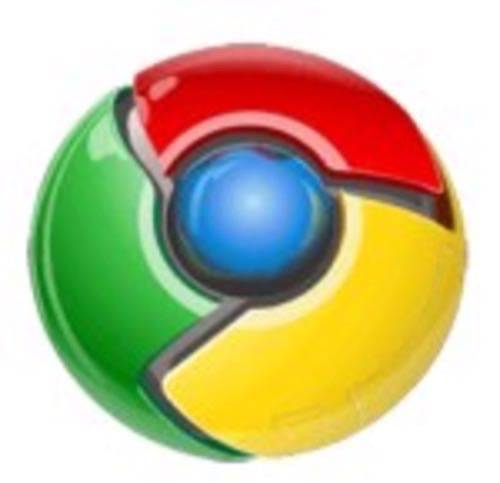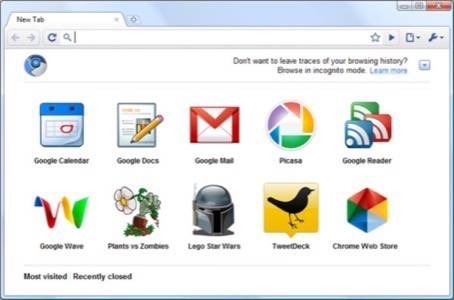When Google’s new Web-based operating system Chrome OS launches later this year, it may be ready to serve not only as a simple netbook and tablet OS, but also as an interface for playing casual games like those currently found on Apple’s iPhone and iPad.

On Apple mobile gadgets like the iPhone and iPod Touch, a combination of hardware-based motion sensors allow the device to know how you’re holding it – up, down, sideways, etc. – and changes the orientation accordingly. And in the iPhone 4, a new gyroscope allows for additional motion-sensing capabilities, too, like the ability to track orientation, velocity and rotation.
But Web browsers, like IE, Chrome, Safari and Firefox, haven’t traditionally been able to detect which way is up. That may soon change for Google Chrome, the browser that forms the core of the upcoming operating system of the same name – it’s getting orientation capabilities that will tell apps running in the browser which way the device is being held.
Chrome Will Know Up from Down
According to a report from CNET, the orientation support now being added to Chrome would be “particularly useful” for mobile gaming. “For example, tilting a device can turn it into a steering wheel or a tabletop on which a marble rolls,” writes CNET’s Stephen Shankland describing the upcoming capabilities.
Already, developers are hard at work building applications for the Chrome operating system and its accompanying Chrome Web Store, which will function as Google’s version of the “App Store” for Web-based applications. In test builds of the browser’s open source bits, developers are running everything from simple card games to arcade-like casual games, including popular iTunes titles like “Plants vs. Zombies” and console favorite “Lego Star Wars.”

The announcement of the Chrome Web App Store was one of the more exciting reveals from this spring’s Google I/O Developer Conference, where the company explained how the Web App Store would function as a tool that makes application discovery easier for end users while making it easier for developers to list and sell their apps.
Google Bets on Web Apps
Google is betting that the future of computing is the Web, not native applications. Analysts have been predicting this transition as well, citing cloud computing’s soon-to-be disruptive force in the mobile industry, specifically – a segment of the market which would also include tablet computing. Mobile Web apps have the potential to reach more users, including those whose only access to the Web is via a basic “feature phone” with an integrated browser, for example. That alone should make Web apps appealing to developers looking to reach the broadest user base.
For now though, native applications are still extremely popular among end users because of the way they can be specifically customized to take advantage of a particular device’s features and functionality.
But with the upcoming developments in orientation support, Chrome OS will be able to run apps and games that take advantage of some features that formerly only native applications had access to.
That said, there are still several other hurdles for Web apps to overcome before they’re on par with their native application counterparts, including the need for improvements in speed and performance, access to all of device’s sensors and hardware components, the ability to send push notifications and more.
However, a Web browser which knows which way is up is a good first step.

















